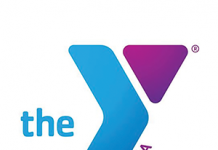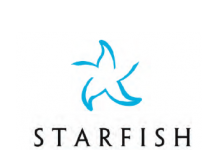 When Detroit’s black gay pride event, Hotter Than July, was founded in 1996, the city’s lesbian, gay, bisexual, and transgender community was in a much different place than it is today. The scourge of HIV on the community in the ’80s was still a fresh wound, and due to homophobia, many LGBT people were forced to maintain a low profile. At the time, there was only one other black pride event in the entire country.
When Detroit’s black gay pride event, Hotter Than July, was founded in 1996, the city’s lesbian, gay, bisexual, and transgender community was in a much different place than it is today. The scourge of HIV on the community in the ’80s was still a fresh wound, and due to homophobia, many LGBT people were forced to maintain a low profile. At the time, there was only one other black pride event in the entire country.
“People were still afraid to be outed, particularly black and brown people,” says founding member Curtis Lipscomb. “Especially African-Americans.”
The nation has come a long way since then, with a much more visible LGBT community emerging throughout the country, and, of course, the Supreme Court’s 2015 ruling that legalized same-sex marriage in all 50 states.
But Lipscomb says there’s much more work to be done for LGBT issues — particularly in Detroit.
“There are a lot of people who are forgotten. And for those who got marriage and think that everything’s OK — well no, everything isn’t OK,” Lipscomb says. “Institutions around the country believe that since we got marriage, we can close the door. And I have a serious problem with that.”
HIV infection is still an ongoing concern, increasingly among young black men. Poverty and lack of economic opportunity have forced many to seek sex work as a means for survival, especially among black transgender women. And with the church historically playing a central role amid African-American communities, many LGBT Detroiters still face the very real possibility of rejection from their families, peers, and neighbors.
In the 2000s, Hotter Than July grew in size and popularity as an entertainment event, but some people wanted to find additional ways to serve the community. In 2003, Lipscomb founded a nonprofit arm, then known as Kick. In 2015, the organization rebranded itself as LGBT Detroit.
Since 2011, the organization has been based in Midtown. It quickly outgrew the space, and further felt a pinch as the area exploded in development, limiting its available parking.
The group’s board of directors began searching for a new space in 2014, eventually settling on a former medical facility on the city’s northwest side, which was acquired through a generous donation. Located on Greenfield Road between Seven and Eight Mile, the new space has ample and free parking, increasing the number of people it plans to serve. The new space is also nearly triple the size of its former facility, expanding from 1,200 square feet to 3,500 square feet. The organization plans to have the new space up and running in the fall.
Lipscomb says the move makes the organization the nation’s first black LGBT organization to own its own space that is neither specifically centered on HIV/AIDS nor faith. The group has seed money to move into its new, unique space and revamp it, but it relies on donations for its programming, the majority of which is offered for free.
“There are no financial barriers to gain services from us,” he says. “It is the public that helps us meet our needs and provide services to people.”
That includes the Detroit LGBT Leadership Academy, which trains young adults between 18 and 30. The program has had 52 graduates since 2012.
The organization will also continue to provide services in partnership with the Michigan Department of Community Health, University of Michigan’s Public Health, and the Centers for Disease Control and Prevention. Educational programs offered through those partnerships aim to help reduce the spread of HIV and AIDS.
“Obviously, the HIV and AIDS epidemic has taken our loved ones in a way that I identified as a Holocaust,” Lipscomb says. “For us who have survivor’s guilt, you can’t help but to make sure no one else is impacted by HIV and AIDS.”
The organization also offers programs to help reduce tobacco use.
As the new space continues to take shape, LGBT Detroit will also continue its Talk Tuesdays, a weekly meeting that Lipscomb describes as a “big therapy session” open to any and all who wish to attend. In the near future, Lipscomb hopes to expand outreach into Detroit’s Spanish-speaking population as well.
While Lipscomb notes the city has been cooperative with LGBT Detroit’s goals — he says Mayor Mike Duggan plans to attend the ribbon-cutting ceremony at the new building — he points out the group has no formal relationship with the city to provide programs and service.
“This is the effort of private citizens stepping up, as it should,” Lipscomb says. “We’re not waiting on any government level to make a safe space for LGBT people, period. It’s up to the people.”
For more information, visit lgbtdetroit.org
|
|
|









